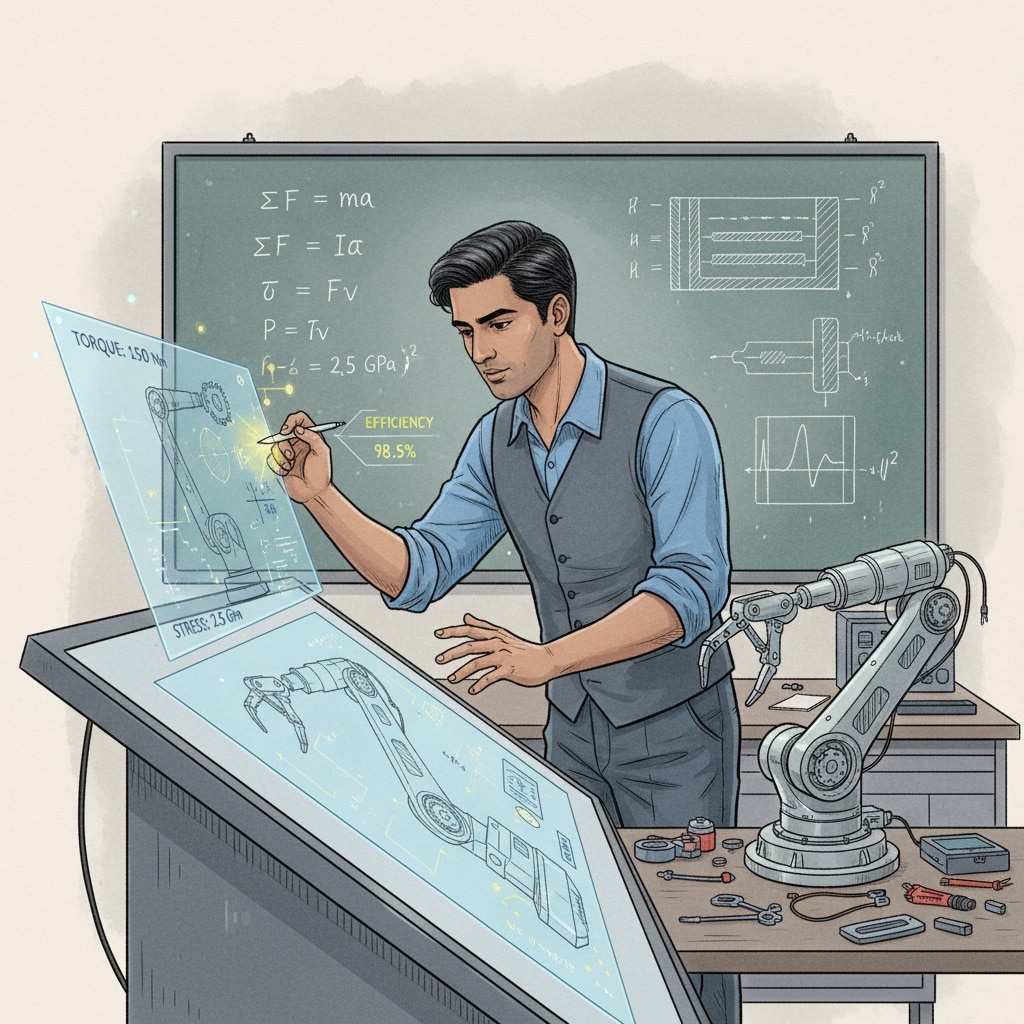The idea of a career transition from mechanical engineering to math education might seem like a significant leap, but it is indeed a feasible and rewarding journey. In recent times, many mechanical engineering graduates are exploring this shift, and in this article, we will uncover the various aspects of this transition.

The Feasibility of the Transition
The skills acquired during a mechanical engineering education lay a solid foundation for a career in math education. Mechanical engineering involves a deep understanding of complex mathematical concepts such as calculus, differential equations, and linear algebra. These mathematical skills are directly transferable to teaching math at various levels. For example, the ability to solve real-world engineering problems using mathematical models can be translated into engaging lessons for students. Moreover, engineers are trained to think analytically and solve problems systematically. This problem-solving approach can be effectively imparted to students in a math classroom, enhancing their critical thinking abilities. According to Wikipedia’s entry on Mechanical Engineering, the field is highly quantitative, which equips graduates with strong numerical and logical skills.

Challenges in the Transition
However, this transition is not without its challenges. One of the main hurdles is the lack of formal teacher training. While mechanical engineers have a strong mathematical background, they may not be familiar with educational theories, teaching methods, and classroom management techniques. Another challenge is the need to adapt to the different work environment and expectations. In engineering, the focus is often on project-based work and collaboration with other professionals. In contrast, teaching requires interacting with students of diverse learning abilities and personalities. Additionally, the shift in mindset from a technical, solution-oriented approach to an educational, student-centered approach can be difficult. As stated in Britannica’s article on Mechanical Engineering, the nature of work in mechanical engineering is distinct from that in education.
The Path to Math Education
To successfully transition into math education, one option is to pursue a master’s degree in education with a specialization in math. This program typically includes courses in educational psychology, teaching methods, and curriculum development. It provides the necessary training to become an effective math teacher. Another path is to obtain a teaching certification. Many states offer alternative certification programs for individuals with a bachelor’s degree in a non-education field. These programs usually require completing a certain number of education courses and passing a teaching exam. Additionally, gaining practical experience through tutoring or substitute teaching can be invaluable. It allows individuals to get a feel for the classroom environment and develop their teaching skills.
In conclusion, the career transition from mechanical engineering to math education is a viable option. With careful planning, dedication, and the right training, mechanical engineers can bring their unique skills and knowledge to the field of math education, inspiring the next generation of learners. The journey may have its challenges, but the rewards of making a positive impact on students’ lives make it all worthwhile.
Readability guidance: This article uses short paragraphs and lists to summarize key points. Each H2 section provides relevant details. The passive语态 is kept to a minimum, and transition words are used throughout to enhance flow.


